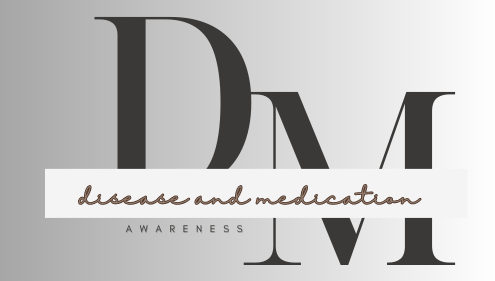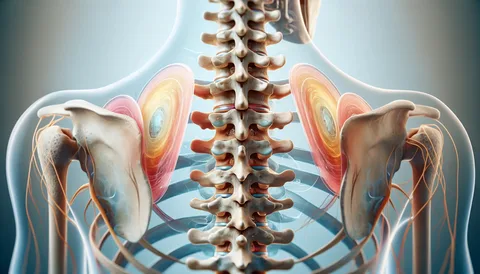Degenerative Disc Disease (DDD) is the common condition which can happen in the spine when the intervertebral disc starts to wear down and which is responsible of producing backaches, stiffness, lack of mobility. Although it is a normal process of the aging process, symptoms can degenerate and make an individual incapacitated unless properly treated. The best solution that can help in reducing the discomfort and further progression of the degeneration is the avoidance of some types of activities, habits, and positions that can exacerbate the situation.
This book is a guide to the most important Things to avoid with degenerative disc disease and is a piece of clinical perspective to patients and health care professionals.
High-Impact Activities
Why not:
Things to avoid with degenerative disc disease through their high-impact effects, running, jumping and contact sports exert too much pressure on the spinal discs, particularly at the two ends: lumbar (lower back) and cervical (neck). Such motions may accelerate wear and tear of the disc, develop inflammation or create emergency flare ups.
Examples not to use:
- This is jogging on hard surfaces
- Plyometric exercise or jump rope
- Such competitive sports as football or basketball
Alternative:
Choose exercise with less force like swimming, walking or cycling on a stationary bicycle they enhance better blood circulation and body flexibility without stressing the spine.
Bad posture and sitting down a long time
Why not:
Slouching or prolonged sitting adds pressure on the spinal discs more on the lumbar region. This further compresses the discs with time and causes pain and stiffness.
What not to do:
- Working on the chair without a lumbar pad
- Using the computer or smart phone in a bent forward posture
- Long hours of driving with no rests
Recommendation:
- Sit on ergonomic chairs that have lumbar support
- Have strolls or stand and stretch every 30–60 minutes
Improper Body Mechanics and Heavy Lifting
The reason not to:
The pressure that the heavy objects cause on the spinal discs and muscles that support the spine is enormous particularly when handled improperly. This makes the chance of herniation or even degeneration worse.
The worst to do:
- Weightlifting in a free manner
- Wearing heavy luggage or grocery stuff on one side
- Bending lower in the waist to lift rather than knee bending
Proper method:
- Kneel down, bring the load near you and use your legs rather than the back to lift the load
- Where the capabilities are available, resistive devices such as carts or lifting belts should be used.
Smoking and Use of Tobacco
The reason behind avoiding it:
Nicotine causes impairment of the flow of blood to the spinal discs and thereby decreases the supply of oxygen and nutrients. This affects the process of repairing damaged tissues as well as makes disc degeneration faster.
What not to do:
- Cigarettes
- Smoking and vaping
- Chewing tobacco
Professional advice:
You may need to consider joining a smoking cessation program because by quitting, you will make a meaningful contribution to spinal health and well-being.
Obesity and Bad Eating Habits
What not to do:
- Refined, processed, and fat high-sugar foods
- Consumption of excess calories without any forms of exercise
Dietary tips:
Eat a moderate, anti-inflammatory diet including a lot of fruits, vegetables, lean protein, whole grains, and omega-3 acids. Visit a nutritionist where necessary.
Denial of Pain and Procrastination of the Treatment
The reasons to avoid:
The effects of powering through pain or disregarding the warning signs is that this symptom is also able to exacerbate disc damage to the point of secondary aggravation such as spinal stenosis, nerve compression, or chronic pain syndromes.
Indicators not to miss:
- Back or neck pain that does not go away or gets worse
- Limbs numbness, tingle or weakness
- Radiating pain in the arms or legs
Recommendation:
Request an assessment at the doctor. Physical therapy, medications, or any interventional treatment can be used early to delay the progression of the disease and decrease discomfort.
Excessive use of Pain Medications
Why not:
Overusing pain relievers, especially opioids or NSAIDs, may result in dependence, adverse reactions, or a decrease of effectiveness with time.
What not to do:
- Excessive consumption without medical attention of nonscheduled analgesics over a prolonged period of time
- Medicating self without doctor recommendation
- The rejection of the non-medical treatment methods
Alternative management:
Physical therapy, chiropractic, massage therapy, acupuncture and mind-body techniques such as yoga or meditation should be incorporated in a holistic medical practice.
Inactivity / physical inactivity
The reason not to:
The sedentary life, due to its influence, can weaken core muscles, decrease the flexibility of the spine, and affect the circulation deteriorating the symptoms connected with DDD.
What not:
- A huge number of days in bed during flare-ups
- Lack of movement out of the fear of pain
Solution:
Perform light, consistent activity such as stretching, walking and assisted physical activity to promote the health of the spine and assist with mobility.
Conclusion
Things to avoid with degenerative disc disease involves being proactive about self care, and becoming knowledgeable. This means that they can flatten the course of flares by avoiding high-risk factors, which include, poor posture, heavy lifting, smoking, and sedentary lifestyle. An individual approach, close contact with healthcare professionals, and a personalized treatment plan may contribute to increasing quality of life and better long-term results.
Key Takeaways:
- Steer clear of spine-testing exercise (e.g., heavyweight exercising, high-impact activity)
- Have a good posture and weight
- Exercise low-impact aerobics
- Stop smoking and take a well balanced diet
- Get timely professional help, and take care of your plan
Degenerative Disc Disease must always be properly diagnosed and treated with the help of a licensed healthcare provider.

